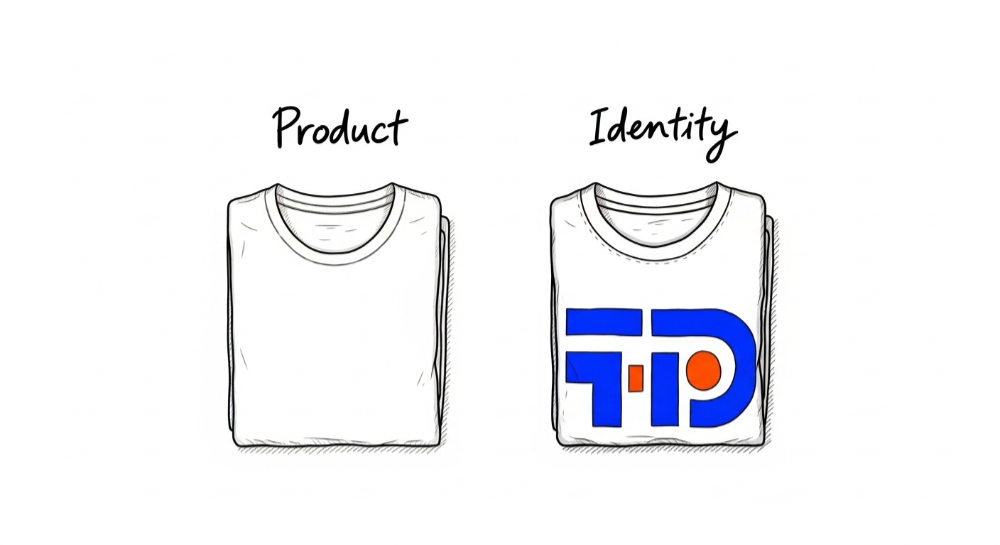
Don’t Sell Products, Sell Identities

When someone buys from your brand, it becomes a part of their identity.
Yes, even the ₹200 T-shirt from Sarojini Nagar counts.
Have you ever noticed how proudly someone says, "Bro, these are Levis," or, "This is from Max, organic cotton hai."?
It's not just a statement about clothing; it's a statement about themselves.
That brand has stopped being a label on the tag and started becoming a label on their identity.
Buying something is not just a purchase, it's a handshake between the buyer and what the brand stands for.
Your brand is no longer just an item of utility; it's now a reflection of them.
The guy flaunting that Nike cap? He's lowkey telling you he hustles hard, stays fit, and believes in "Just Do It", even if all he's doing is watching IPL while eating chips.
This brings us to a big truth bomb: Brands are not just products. They are personalities .
Max and Zudio: The "On-Trend" Hustler
Max and Zudio are like the butter chicken of Indian fashion, popular, tasty (read: trendy), and you know it won't disappoint.
When someone buys a ₹1,500 Zudio t-shirt, what they're really saying is:
"I'm cool. I'm updated. I know what's trending on Instagram."
It's less about the price and more about the vibe.
Walk into a college canteen, and you'll see guys and girls rocking oversized Max hoodies with chunky sneakers.
These aren't just clothes; they're their badges of style.

This crowd isn't just buying fabric; they're buying into the idea of being stylish. They're telling the world:
"I am young. I am relevant. I look good in reels."
Lesson for Brands: Trends don't just sell; they define . Your brand must reflect what your customer wants to become.
Levi's: The Evergreen Rebel
A pair of Levi's jeans isn't just denim stitched together; it's 150 years of cultural heritage, rebellion, and rugged coolness.
You don't wear Levi's because you want to look rich. You wear Levi's because you want to look real.
Whether it's that biker uncle cruising down the highway or a college kid wearing ripped Levi's, the jeans mean the same thing:
"I am a little different but also practical."
Levi's tells a story of authenticity, durability, and rugged charm.
The guy wearing it becomes those things because that's what he bought into.
Lesson for Brands: If your product has history, own it .
History isn't boring; it's branding gold.
Why This Matters For Your Brand
When people buy from your brand, they're adding a new chapter to their own story.
Your job isn't to just sell them something; it's to make them feel a certain way:
- A Levi's buyer feels confident.
- A Zara buyer feels stylish.
So, ask yourself this:
What will your customer feel when they buy from you?
- Will they feel like a smart hustler?
- Will they feel elegant and classy?
- Will they feel rebellious and free?
The answer to that question will decide if your brand gets a place in their wardrobe and their identity.
And every time someone wears your brand, it's free advertising.
They don't need to shout "I love this brand!"; their choice of clothing already did that for them.
So make sure your brand stands for something.
Because the moment someone wears it, they're not just buying fabric, they're buying a slice of who they want to be.
11, PNR Nagar
Dindigul, Tamil Nadu 624001, India
No comments yet. Be the first to comment!